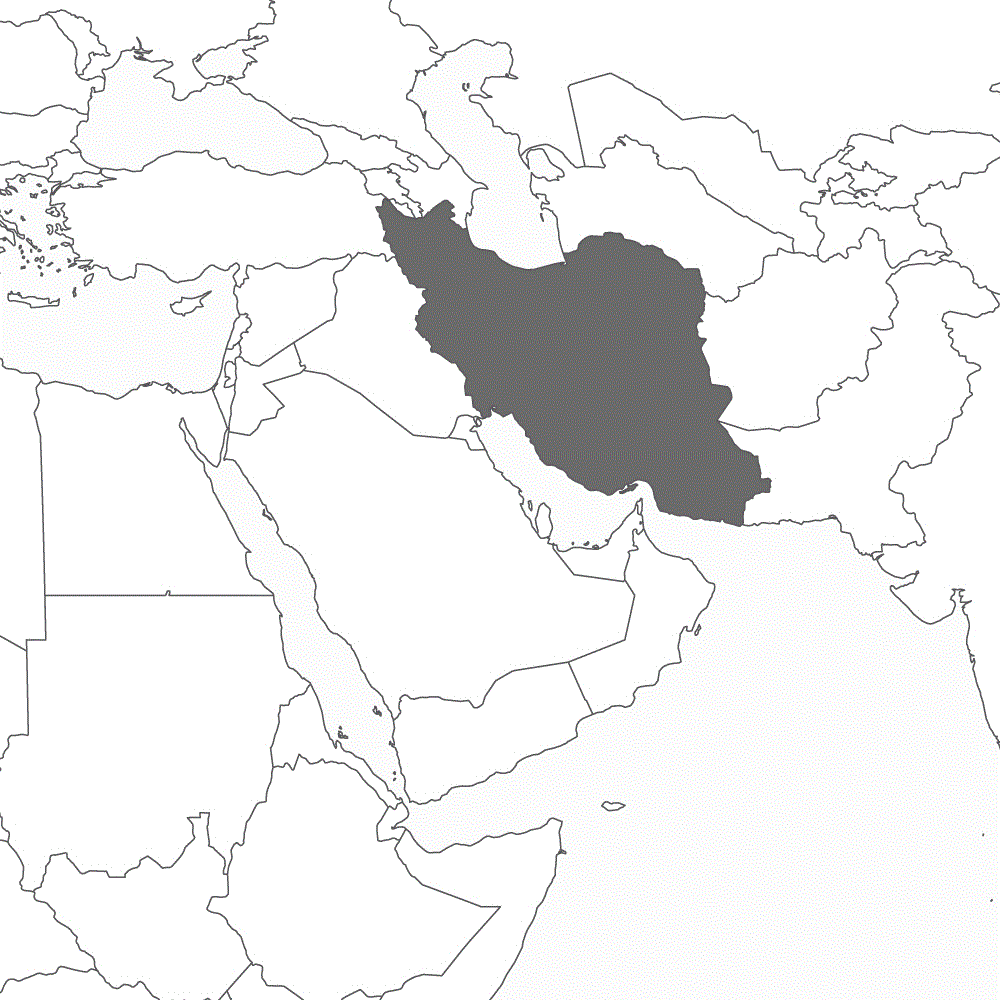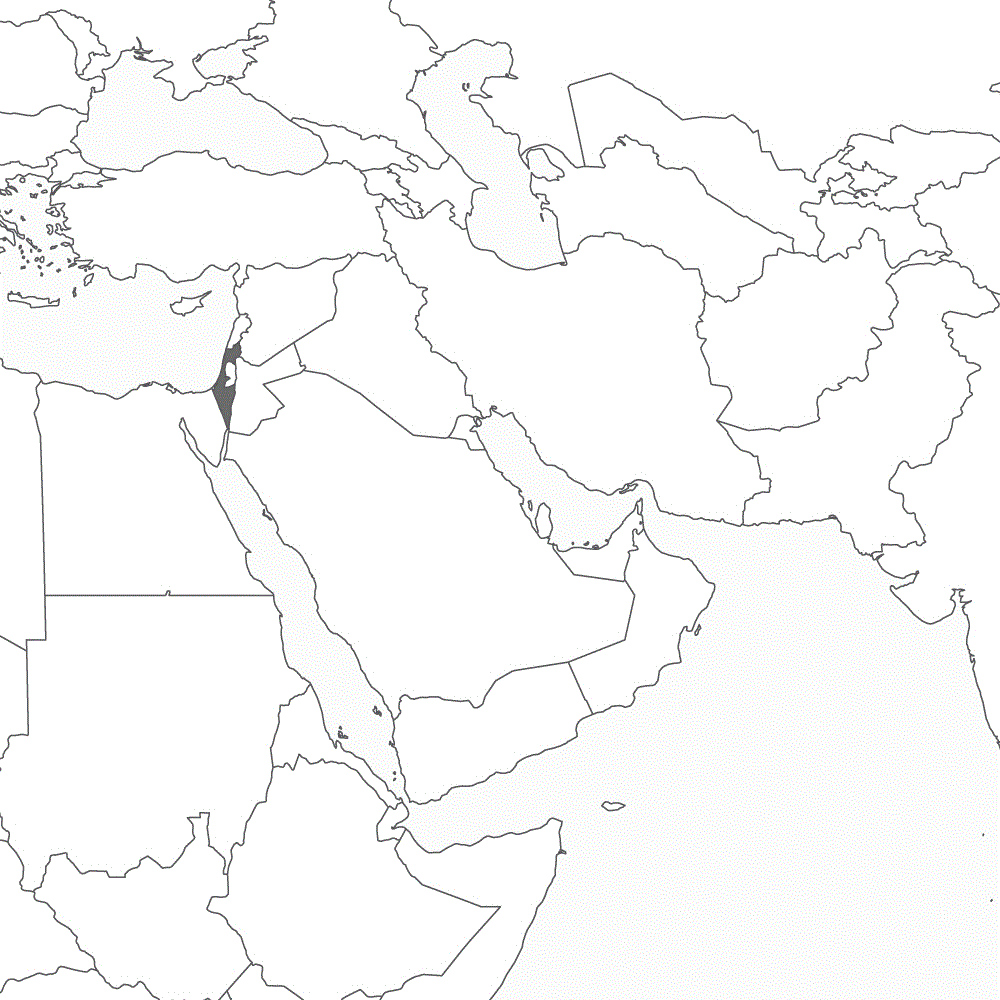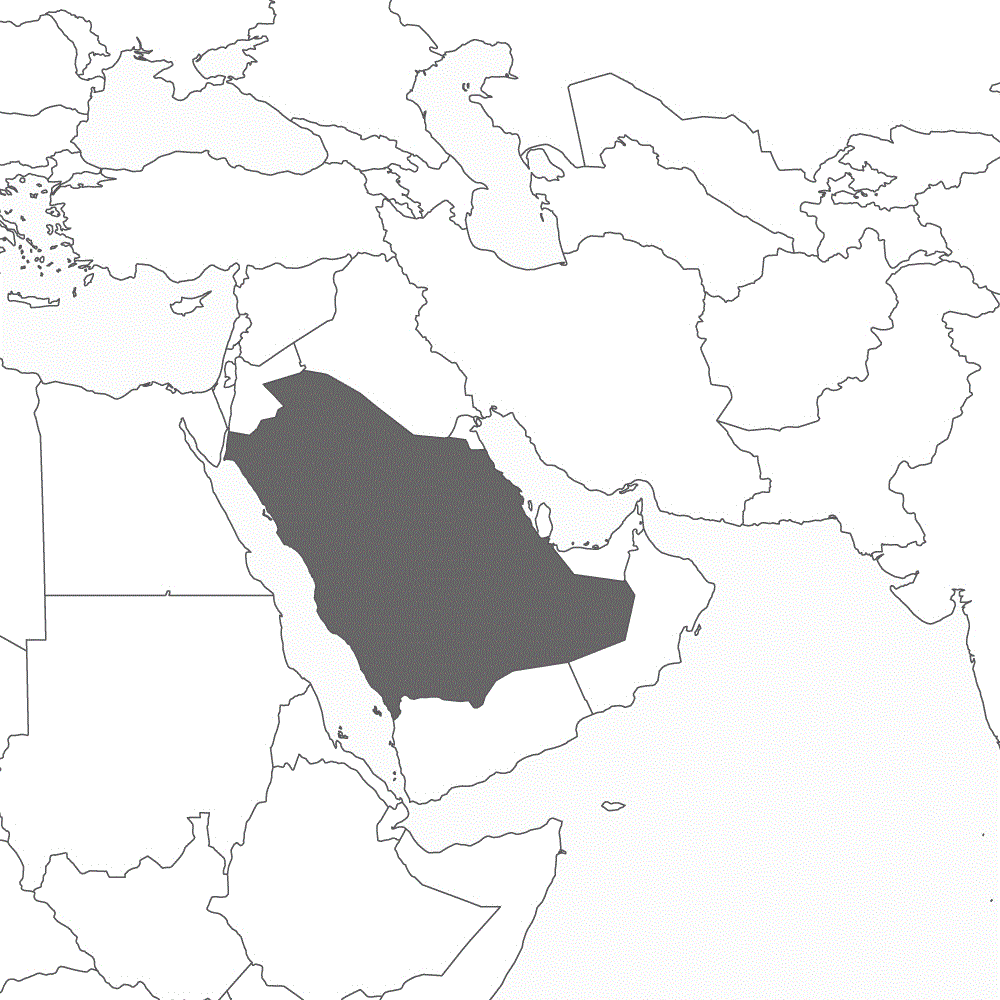Dirty work (II)
Responding to the US attack on Iran, Berlin again approves a violation of international law. Israeli strikes had already put an end to ongoing talks. Has the future of diplomacy been blighted?
BERLIN/WASHINGTON/TEHRAN (own report) – The US has joined Israel’s war of aggression on Iran. And by approving US strikes, the German government has endorsed a second violation of international law within ten days. “Our aim continues to be to prevent Iran from acquiring a nuclear weapon,” reads a joint statement issued by Germany, France and the United Kingdom yesterday, Sunday. It demands that Tehran should immediately engage in talks leading to an agreement that addresses all concerns associated with its nuclear programme. Yet Iran had already been in the midst of negotiations with the United States until those talks were stopped by Israel’s attacks. On top of this, a negotiating process with the three largest Western European states was also wrecked by the US bombing raids. In fact, the assaults by Israel and by the US have not only violated and further undermined international law but have also discredited diplomacy in general. They have seriously damaged the future of diplomatic efforts worldwide. Moreover, Israel’s pursuit of “decapitation”, the elimination of an adversary’s military and political leaders through targeted assassinations, only worsens what is becoming common practice in warfare. As for the use of violence to enforced denuclearisation, experts now believe Iran will want to accelerate its push for nuclear armament as the only way to prevent such attacks in future. Read more
Escalation in the Middle East (II)
EU and several G7 states announce new Iran sanctions, with Germany pushing hard. Yet Israel’s attack on the Iranian consulate in Damascus without consequences. Double standards widely criticised.
BERLIN/TEHRAN/TEL AVIV (own report) - The EU and several G7 states are preparing new sanctions against Iran, partly in response to German pressure. This move follows Iran’s attack on Israel last weekend. The missile and drone bombardment was the first time Iran has directly targeted Israeli territory, although the two states have been engaged in violent clashes for many years. Since 2013, and increasingly since 2017, Israel has been hitting Iranian positions in Syria. Since 7 October 2023 the Israelis have focused on targeted assassinations of Iranian commanders, killing almost a dozen by the end of March alone. The airstrike on an Iranian consulate building in Damascus on 1 April killed seven Iranian commanders, some of them high-ranking. It marks “an unprecedented escalation” by Tel Aviv, notes the London-based think-tank Chatham House. It could yet prove to be “the spark that ignites the Middle East”. In response, the West has taken no action against Israel for, not least, violating the Vienna Convention on diplomatic sites. Iran’s retaliatory strikes – a choreographed show of strength communicated in advance – immediately triggered Western punishment. The double standards once again on display have given rise to some fierce criticism from the wider international community. Read more
Imminent Humanitarian Catastrophe
Gaza: imminent Humanitarian catastrophe – ignored by von der Leyen. Her stance is met with heavy criticism within the EU. The War threatens to spread to other countries in the region. Iran consolidates anti-Israel forces.
BERLIN/TEL AVIV/TEHERAN (Own report) – EU Commission President Ursula von der Leyen’s remarks during her trip to Israel last Friday comes under sharp criticism within the EU. Von der Leyen stressed Israel’s right to self-defense, but did not mention its obligation to comply with international law in operations in the Gaza Strip. This corresponds to Berlin’s official position, but torpedoes EU decisions. Her stance weighs heavily: Israel’s cutting Gaza off from water, energy and food is in violation of international law, as is the fact that countless civilians are falling victim to its bombardments. EU politicians warn that von der Leyen is once again exposing the Union to accusations of applying double standards in the Global South. This comes while the Gaza war risks spreading to other countries in the region. Iran is in the process of coordinating anti-Israel forces, for example in Lebanon. Israeli intelligence officials regret having once supported assassination and sabotage operations on Iranian territory: These acts had driven both countries into their current confrontation. Read more
The End of US Domination at the Persian Gulf (III)
China gains new influence at the Persian Gulf with its successful mediation in the Saudi-Iranian conflict. Decline of US domination could also weaken Germany's position in the region.
RIYADH/TEHRAN/BEIJING (Own report) – With China gaining influence at the Persian Gulf through its successful mediation in the conflict between Saudi Arabia and Iran is not only calling into question US domination, but also Germany's position in that region. Beijing has achieved initial success in bringing about rapprochement between Riyadh and Tehran. Both are now intending to resume diplomatic relations and are negotiating far-reaching cooperation. It they succeed, US efforts at establishing a sort of Arab NATO against Iran, are about to fail. For decades, the Federal Republic of Germany has also been benefitting from US domination in the Middle East, as it could always procure crude oil and natural gas from the region, whenever needed and engage in profitable business deals. Most recently, a former Siemens CEO temporarily served as economic advisor to Saudi Crown Prince Muhammad bin Salman, the actual ruler of the country. It is uncertain whether the receptiveness to Berlin's interests in the Middle East will continue despite the loss of U.S. influence. The close alliance between Saudi Arabia and the United States has been in a crisis for some time. Read more
The End of US Domination at the Persian Gulf
Think tank calls on Berlin and EU to intensify their efforts to gain influence at the Persian Gulf. So far, China is main beneficiary of US partial withdrawal, and could become the stabilizing power of the Middle East.
BERLIN/TEHRAN/ABU DHABI (Own report) - The incoming German government should intensify its efforts to gain influence at the Persian Gulf, thereby assuring that the EU can be "an actor" in the "global contest" for obtaining regional power. This demand is raised by the German Council on Foreign Relations (DGAP) in its current position paper, due to the power vacuum that is developing from the US focus on its power struggle against China, and therefore withdrawing from the Middle East. The People's Republic of China, on the other hand, is strengthening its position, not only in Iran, with which it had concluded a 25-year "strategic partnership" last March and is seeking means for circumventing US sanctions, but in Arab Gulf countries as well. Beijing, for example, is also expanding its activities in the United Arab Emirates (UAE) and in Saudi Arabia - and is supplying them with 5G technology from the Huawei corporation, that Washington is so fiercely opposing. Appeals to Berlin and Brussels to strengthen the EU's position in the region, have so far been in vain. The DGAP warns that in light of the global "rebalancing of power, " raising the question of whose order will prevail. Read more
Iran's Shift to the East
With oil purchases and agreements of cooperation, China ensures long-term influence in Iran. Berlin and Brussels lose out due to US sanctions.
BERLIN/TEHRAN/BEIJING (Own report) - Berlin and the EU could permanently lose out on political influence and substantial business deals in Iran, due to new agreements between Iran and China, on the one hand, and to the ongoing US blockade of Tehran on the other. The People's Republic of China has not only been able to somewhat maintain its Iranian oil imports despite US sanctions, and, since the beginning of the year, also register a significant increase. Over the weekend, Beijing even concluded a comprehensive cooperation agreement with Tehran, which provides for huge investments and could, in the long run, procure a long-term dominant economic influence for China in Iran. Germany's attempt to sidestep US sanctions in favor of German business with Iran has failed, with no perspective for relaunching its traditionally lucrative economic activities in that country. Experts complain that the Biden administration is even blocking necessary humanitarian imports of food and Covid-19 vaccines. Read more
The Next Round in the Nuclear Dispute with Iran
Berlin urges future US administration to change course in relation to Iran, while Teheran favors a "look east" policy.
BERLIN/WASHINGTON/TEHERAN (Own report) - The German government is pushing for a quick return to the nuclear deal with Iran once designated US President Joe Biden takes office. Already months ago, Biden had declared his willingness to do so. German companies are hoping for lucrative business opportunities, which would also help them to weather the Corona crisis. However, obstacles persist in Washington, such as the presumed continued Republican majority in the US Senate and a new wave of sanctions initiated by outgoing President Donald Trump. Thus, supplementary, coercive measures, independent of the nuclear deal, would, in fact, be imposed on Iran's entire oil sector. Biden is raising the demand - supported also by Berlin - that Iran refrain from seeking regional influence and limit its missile program massively. Teheran is unwilling to comply and - given its experience in dealings with the West - prefers a "look east" policy. Read more
No Mercy from the West
UN Secretary General sharply criticizes sanctions on Iran because they hamper the fight against the Covid-19 pandemic. Berlin remains silent.
BERLIN/WASHINGTON/TEHRAN (Own report) - US sanctions on Iran, to which German enterprises are obliged to conform, are in fact seriously hampering the fight against the Covid-19 pandemic, according to UN General Secretary António Guterres, who is campaigning for an immediate suspension of the sanctions. The boycott measures had already caused serious damage to Iran's health system prior to the outbreak of the pandemic, depriving, for example, cancer patients of desperately needed medicine. Now they are blocking deliveries of Covid-19 test kits that are inexpensively produced in Germany. Iran is one of the countries hardest hit by the pandemic. The numbers given in yesterday's official statistics - around 27,000 infected, a little more than 2,000 deaths - are considered far too low. Iranian experts fear an increase in deaths into the 6 or 7-digits. Washington, with absolutely no intention of at least suspending the sanctions to enable the fight against the pandemic, imposed even new punitive measures a few days ago. Berlin remains inactive and silent. Read more
An Assassination and its Consequences
Conflict over Iran escalates. Iraqi parliament demands the withdrawal of the German Bundeswehr
WASHINGTON/TEHRAN/BERLIN (Own report) - Following the USA's assassination of Iranian General Qassem Soleimani and other high-ranking Iraqi and Iranian military personnel, demands are being raised in Baghdad to expel the foreign troops, including the Bundeswehr. The Anti-IS Coalition troops, stationed in Iraq, must leave the country, the Iraqi parliament ruled yesterday. The German government insists on keeping German troops in Iraq to be able to maintain its options for gaining influence in that country. Berlin had earlier already rejected calls to end its deployment for security reasons. Camp Taji near Baghdad, where 27 German soldiers are currently stationed, had already come under missile fire in June. The camp could become a possible target for retaliatory strikes by Iran or pro-Iranian militias. Whereas the German government euphemizes the assassination of Soleimani as "a line of action undertaken by the United States", the chairman of the SPD parliamentary group officially called it a “violation of international law." A government advisor spoke of "state terrorism." Read more
BERLIN/TEHRAN (Own report) - German military experts have presented their first concrete plans for an EU naval operation in the Persian Gulf. According to the draft of two well connected government advisors and a Bundeswehr professor, warships should be cruising at the two entrances to the Strait of Hormuz. Supplementary warships should escort oil tankers through the strait with armed troops on board to ward off possible attacks - depending on the disposition to escalate. This would necessitate "between 10 and 30 percent of the EU's naval capacities," and Berlin should be in command of the deployment to demonstrate its aspiration to shape global policy. Whereas sectors of the SPD and the opposition reject the operation, the chancellor and foreign ministry are promoting the plan also within the EU. Previously, Foreign Minster Heiko Maas had rejected the US demand for Germany to deploy warships in a US-led naval mission in the Middle East. Berlin is positioning itself to be an independent power in global politics. Read more
GERMAN-FOREIGN-POLICY.com
Information on German Foreign Policy: News + Interviews + Analyses + Background


